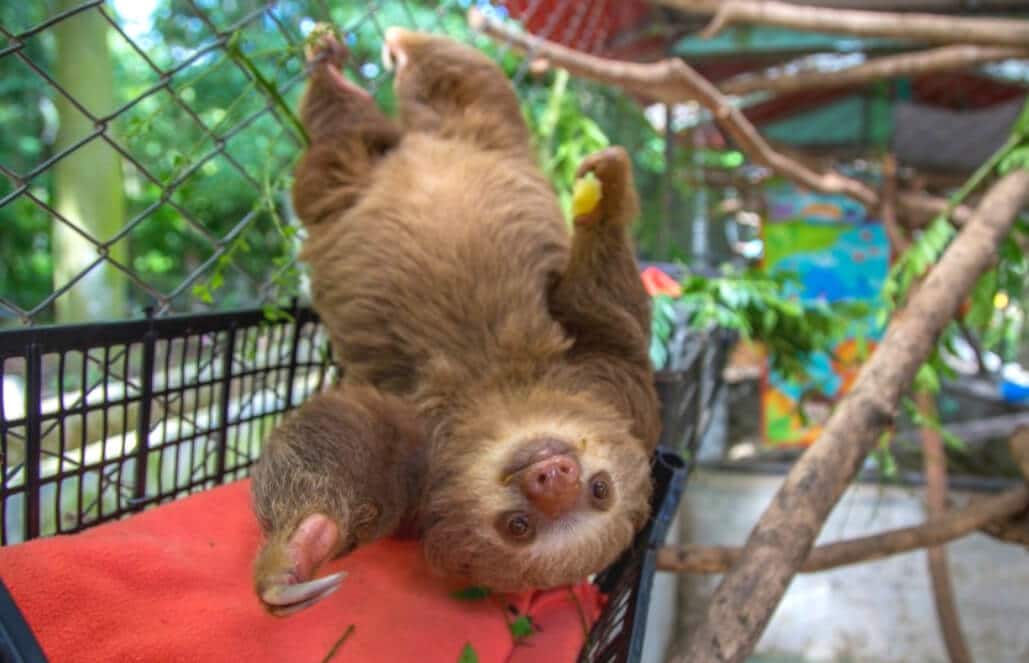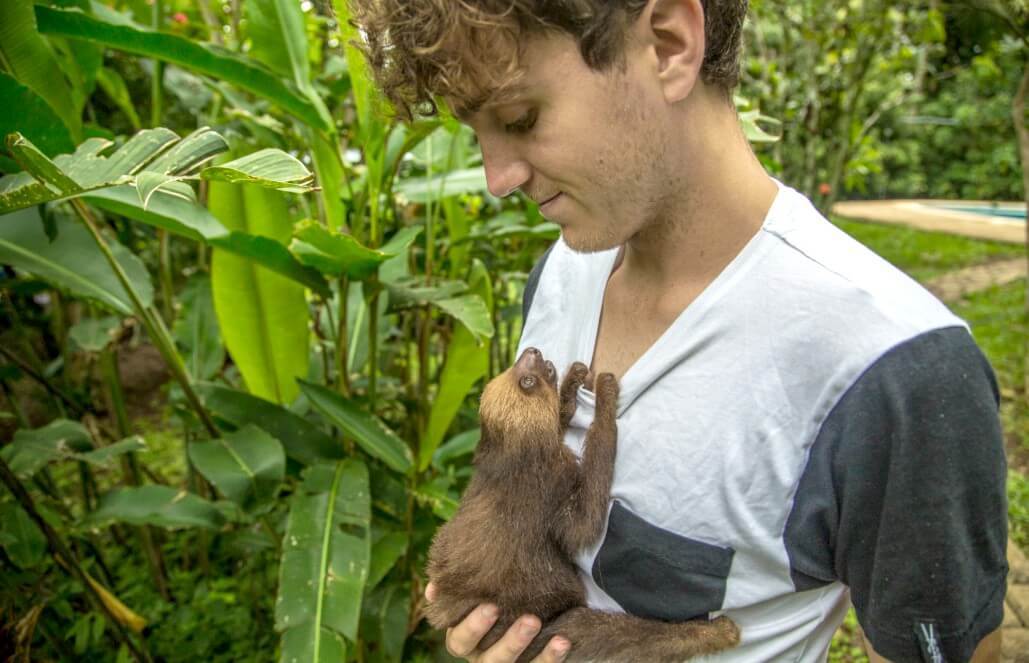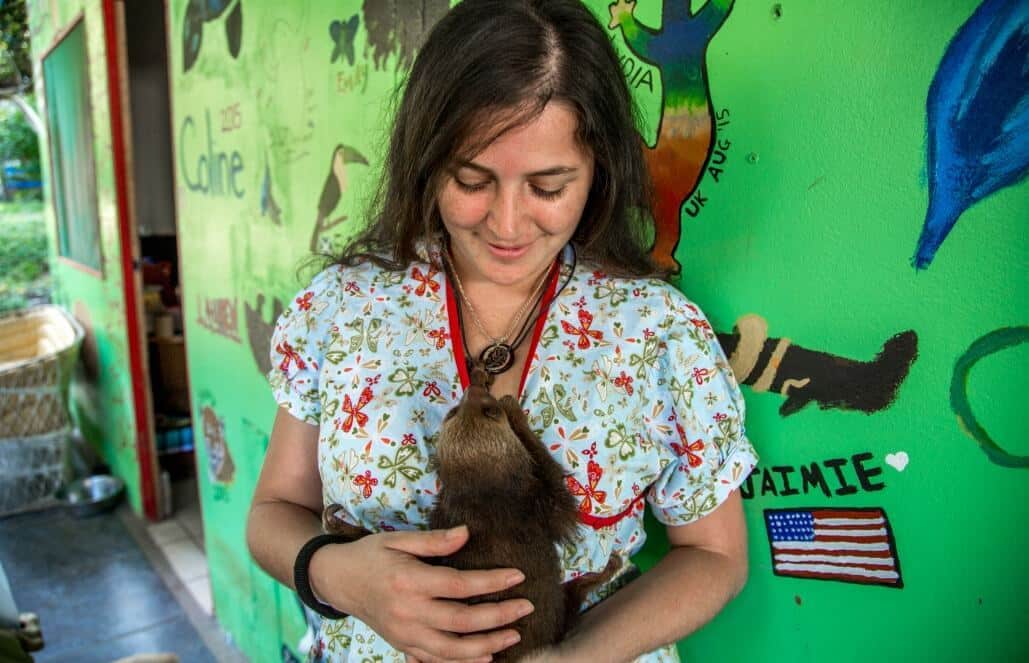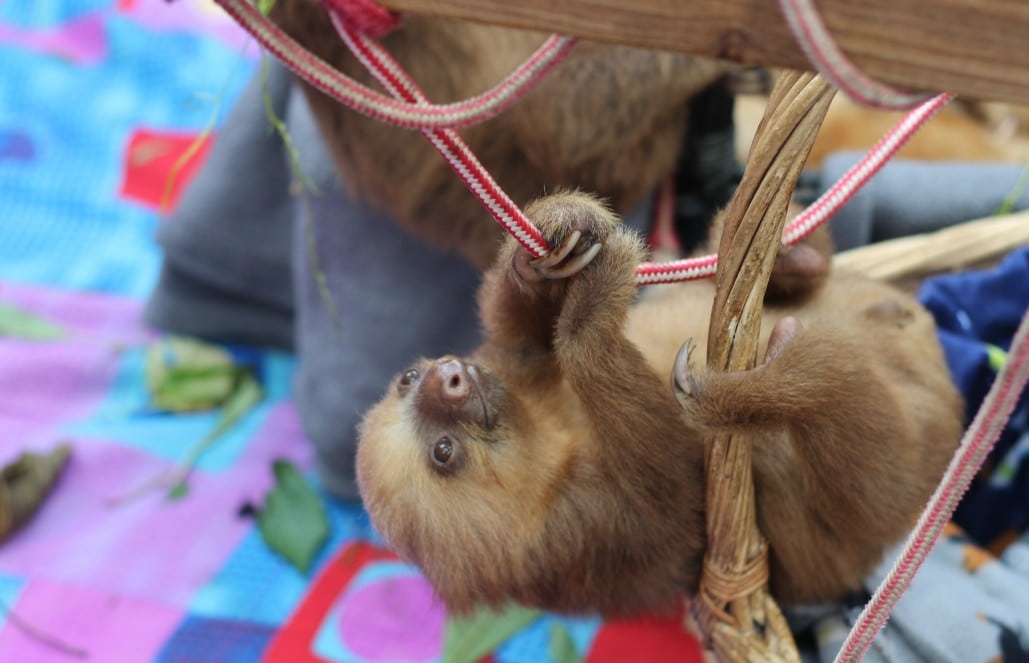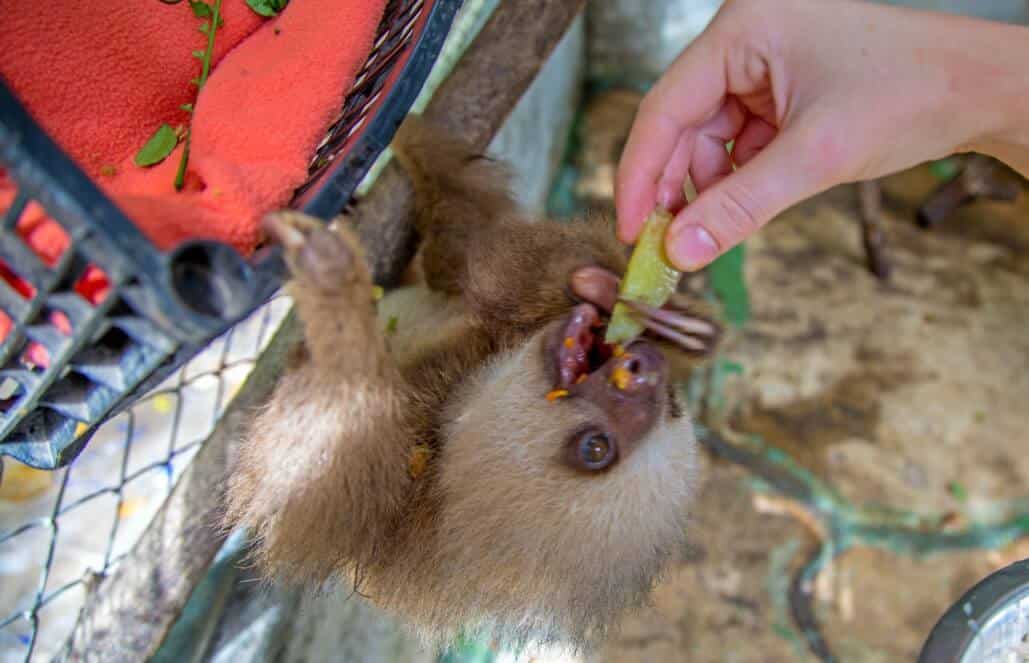Ah, sloths. What’s not to love? These tree-dwelling animals are cute, fun and friendly to humans! Like many of us, sloths like to hang and to take long naps. Sloths are native to Central America in countries such as Costa Rica as well as to South America, and live in the trees of the tropical rainforests. Although seemingly cuddly, the fur of sloths is host to green algae, which helps sloths to camouflage into trees as well as provides them with nutrients. This symbiotic relationship helps sloths survive in nature.
Sloths are native to the tropical and enchanting rainforests of the Central American country of Costa Rica. The sloths indigenous to Costa Rica belong to both families of sloths – two-toed and three-toed. Hofmann’s two-towed and the brown-throated three-toed sloths are native to Costa Rica. Due to their cuteness, however, sloths are in danger from wildlife traffickers who try to sell them in the illegal pet trade.
So, how can you get the opportunity to cuddle with these cute animals that have captured our hearts without causing them any harm?
Sloth Sanctuaries
GoEco works with several wildlife sanctuaries that have rescued injured, orphaned and abandoned sloths as well those who were being sold in illegal trades. The most prominent of our wildlife sanctuaries that works with sloths, however, is our Sloth and Wildlife Rescue Center in Costa Rica.
This volunteer program works with three different wildlife sanctuaries in Costa Rica, all of which have rescued a large number of sloths from poachers, the illegal pet trade and those who have lost their habitat due to deforestation. These sanctuaries are renowned and only allow ethical wildlife interactions. The sanctuaries are located in the Alajuela and Puntarenas Provinces.
Volunteering at a Sloth Sanctuary
You want to help rehabilitate sloths and other indigenous species. So what does volunteering at one of these three sanctuaries look like? The volunteer tasks are very similar to those of other wildlife sanctuaries, with the unique exception that baby sloths may need some extra tender loving care.
Baby sloths who have been injured, poached or orphaned need extra care to replace the parent sloth that is no longer raising them. Volunteers at these sanctuaries may act as parents by caring for the newborns by holding them. It should be noted, however, that if the sloths are placed in only temporary custody at the center before being released, human contact is restricted. Volunteers are unable to come in contact with sloths living outside the center since they have already been released.
Nevertheless, volunteers will assist with cleaning sloth enclosures, preparing fresh fruit fro them and even getting to distribute their food to them.
Why Costa Rica?
As if you really need another reason to visit the tropical rainforests of this vibrant, incredibly diverse country! Truth be told, sloths in Costa Rica face numerous threats, which is why there is such an abundance of sloth-filled wildlife sanctuaries throughout the country.
These, and other wildlife, are under threat from pesticides and deforestation as well as poachers and the overall lack of wildlife protection policies. Our Animal Rescue and Conservation program in Costa Rica works with sanctuaries that are funded by the government or by private conservation organizations.
In addition to the rewarding volunteer work, volunteers begin this placement with a one-week orientation in San Jose. Volunteers get to experience this vibrant city, expand their Spanish language skills and get settled into the country before beginning their volunteer work.
So head to the tropical rainforest to help conserve adorable sloths along with parrots, jaguars and other Costa Rican species that need your help.
Fun Sloths Facts
Although they are tree-dwellers, sloths are fantastic swimmers! Sloths hang from trees by their four-inch claws, and therefore maintain their grip on a tree even after death.
Sloths are nocturnal animals, meaning they are active during night hours. While the average lifetime of a sloth is slightly less than 15 years, sloths can live up to the age of 40!
Learn more about sloths by volunteering with them close-up at our Ecuador – Wild Animal Rescue Shelter, Costa Rica – Sloth and Wildlife Rescue Center, Costa Rica – Animal Rescue and Conservation!


